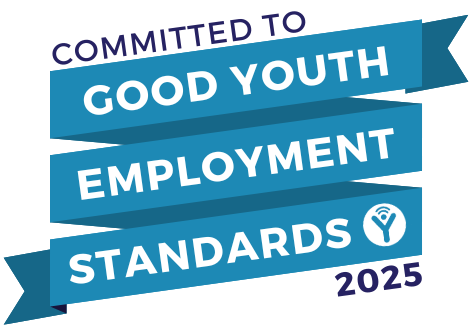Life sciences sector plan
In July, government published its long-awaited Sector Plan for life sciences, which gives more specific detail on how this industry will play its part as one of eight identified as key in driving economic growth in the coming years.
The Plan sets out the government’s vision for harnessing the sector’s potential through three key pillars to boost growth, innovation and better health outcomes: enabling world class research and development; making the UK an outstanding place in which to start, grow, scale and invest; and driving health innovation and NHS reform.
To read our response welcoming the Plan, click here.
Industrial Strategy
In June, the government published its Modern Industrial Strategy – a ten-year plan for economic growth, centred on eight key areas (including life sciences). Ministers said the document would help forge a new partnership between government and businesses.
The Strategy set out a number of key priorities, including greater stability to enable employers to plan and invest, as well as greater financial backing for industries at the forefront of innovation and creativity.
Read our summary here.
Spending Review
Finally, the government also published its Spending Review (also in June), which set out the current fiscal context as well as spending priorities for the coming year.
For our summary, click here.
Skills England up and running
Skills England has officially launched and the first set of priorities has been outlined by Education Secretary, Bridget Phillipson.
The membership of the board has been announced and we know that the first meeting has now taken place. The chair, Phil Smith, has spoken at many sector events in recent weeks and hosted a webinar with the Skills Minister to talk about the work they are undertaking.
Bridget Phillipson has also written to the joint CEOs of Skills England, Tessa Griffith and Sarah McClean to outline the following priorities over the next 12 months:
Understanding the nation’s future skills needs and improving our skills offer
- Data-driven – providing a single ‘authoritative’ voice on current and future skills needs
- Inform the development and maintenance of the right skills training- co-creating and refining occupational standards underpinning a set of qualifications and training products with employers and other partners to ensure that employers are driving the training requirements to meet labour market and economic needs
Simplifying access to skills
- Bring together the fragmented skills system – improve employer engagement in technical education and understanding of the pathways, ensuring a high-quality employer experience.
Mobilise and co-create
Drive action across government and co-create solutions with partners – advising government to enable responses to skills gaps (link to developing the Growth and Skills Levy offer), drive progress in the Labour Market Evidence Group, collaborate with LSIP partners, mobilise local partners and employers to help share and deliver the local training offers, deeply engage with strategic authorities, attract significant internationally mobile investors (developing a service to help investors navigate the UK skills offer).
To see our full response to these priorities, click here.
Apprenticeship Funding Rules
DfE released version one of the apprenticeship funding rules for 25/26 in May, and an updated version was published in mid-July.
Key changes to the funding rules are around:
- support for English and Maths training
- outcome of the initial assessment
- apprenticeship agreement
- minimum duration and employment hours
- off-the-job training
- what can be funded (EPA)
- incentive payments
We believe the most practical change rules concerns off-the-job training hours (OTJT): in previous years, changes have been made to how OTJT is calculated and decided upon for full-time and part-time apprentices. This year, a minimum OTJT figure has been introduced for each apprenticeship standard.
This is the source that providers will use to determine the programme length and will be agreed with the employer and apprentice. This is to allow for more flexible delivery and to incorporate the pending changes to the minimum duration of an apprenticeship from 12 months to eight months (which will require a change in the legislation).
Rachel Roby, Technical Education and Standards Lead at Cogent ran a webinar to walk people through the key changes. To watch, click here.
End-point Assessment reform
The DfE introduced a new set of principles during National Apprenticeship Week 2025, which aim to: simplify assessment plans; remove unnecessary duplication; improve the apprentice experience; maintain rigour and employer confidence; and enable innovation and flexibility in assessment design.
We are starting to see more activity with five apprenticeship standards undergoing revision using the new guidance, and we await the timeline of revising all standards. We know there will be big changes for all involved and Ofqual – who regulated apprenticeship standards – is consulting on a new regulatory framework (for more information, click here).
Growth and Skills Levy
Through its Industrial Strategy and sector plans, the government has underlined its committed to supporting the widening out of the levy. Phase 1 is being launched in August, with shorter and foundation apprenticeships, and we now know Phase 2 will launch next April with short courses. We await formal guidance on what will make up these new courses, and how we can support the sector to develop skills products to support our industries.
Foundation Apprenticeships
Foundation Apprenticeships will launch in August and have now been announced as an offer for employed young people. Each foundation apprenticeship will provide a mix of employability skills and behaviours, technical knowledge and skills, and English and maths; whilst combining valuable hands-on practice in the workplace with off-the-job learning
Level 2 will be eight months in duration, funding will range between £3,000 and £4,500 and there will be financial incentives for employers.
The first seven programmes are:
- Building service engineering
- Finishing trades
- Onsite trades
- Hardware, network and infrastructure
- Software and data
- Engineering and manufacturing
- Health and social care
Coming this autumn
New Ofsted framework
This launches in November and Ofsted is running a series of events from September to support this transition.
Curriculum and Assessment Review
The second report from the DfE Curriculum and Assessment review will be published in the autumn.
Post 16 Education and Skills Strategy
We are expecting this to launch as a white paper in the autumn.
Party Conference Season
Political parties will be holding their annual conferences throughout September and October:
Reform UK: September 5-6
Liberal Democrats: September 14-17
Labour: September 28 - October 1
Green: October 3-5
Conservatives: October 5-8
We will monitor all the conferences and update you on any skills announcements.
Budget 2025
Date to be confirmed, but we expect it will be the end of October.







